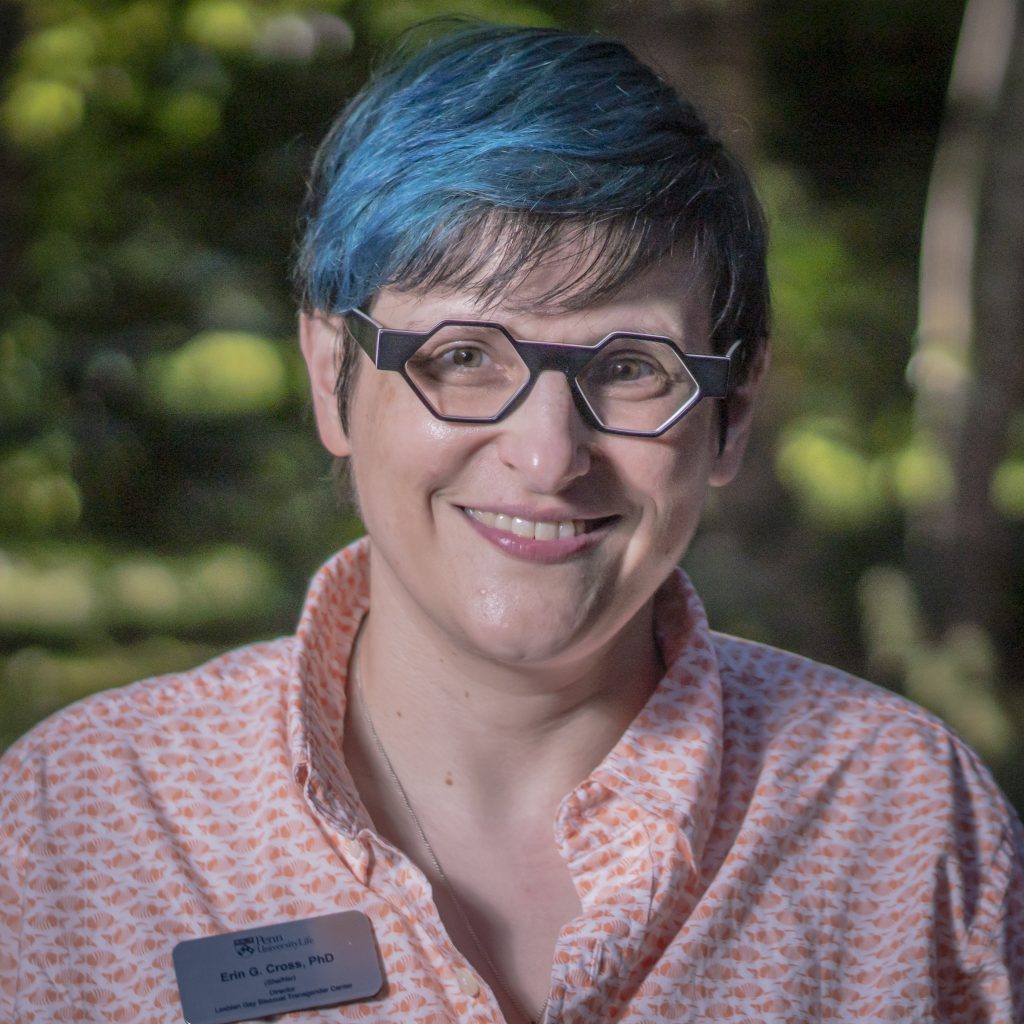Penn LGBT Center’s Scholars-in-Residence Program returns, welcomes three local voices
The University of Pennsylvania’s Penn LGBT Center’s Scholars-in-Residence Program is returning for 2024 and will welcome three new LGBTQ+ scholars with diverse backgrounds, all from the Philadelphia area. This year’s program includes a TedTalk by each of the scholars, which will take place during the University of Pennsylvania’s QPenn week March 22-29. This year’s scholars include a cohort of three local activists and entrepreneurs: TS Hawkins, Kyle Cuffie-Scott and Dr. Danna Bodenheimer.
The program is a first-of-its kind initiative that amplifies queer and trans voices, integrating scholars from varying lines of work into Penn’s classrooms. One of the main objectives of this program is to increase students’ awareness of the LGBTQ+ community and encourage social change.
In the summer of 2022, the Penn LGBT Center received an anonymous endowment of $2 million meant to advance LGBTQ+ scholarship and awareness of the queer and trans community. The Center used this money to launch the Scholars-in-Residence program in 2023. In that first year, the Penn LGBT Center hosted ALOK, a renowned gender-nonconforming author, comedian and public speaker. This year, the focus will be on scholars from the Philadelphia area to connect students with LGBTQ+ professionals who represent the local community.
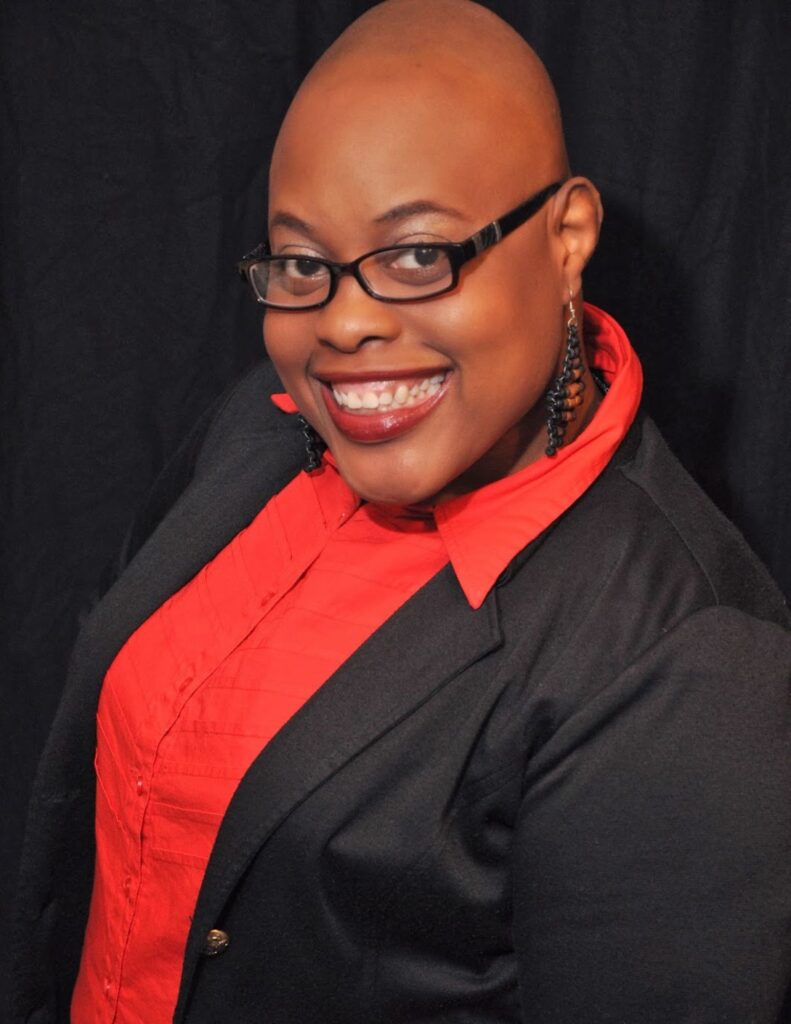
TS Hawkins
Hawkins is an international, award-winning poet, performance artist, playwright and trauma-informed educator. They have been recognized by the Barrymore Awards; featured in publications such as WHYY, NPR and the Chicago Tribune; and are a recipient of both the Victory Foundation Theatre Education Award and a Best of Philly Award. Their written works include “Seeking Silence,” “sweet bread peaches” (formerly ”Cartons of Ultrasounds”), “Too Late to Apologize,” “In Their Silence” (formerly “They’ll Neglect to Tell You”) and others.
“What I love and what I’m intrigued by [about the Scholars-in-Residence program] is, yes, they gave us parameters, but the process is very collaborative and very open,” Hawkins said.
“They want you at the table doing what you do, and a lot of times in a residency, they want your work, but they still want you to follow a specific framework to get that process and product done,” they added. “This has been a very different and engaging experience, which is exciting.”
Hawkins also spoke to the importance of poetry and education, which they will be applying to their TedTalk, “Purpose, Poetry, and Power: Tools for Thriving in a Shifting Society.” The talk will address how one finds peace in the present climate, particularly in the context of social media. Hawkins will also be turning their talk into a master class in the program.
Hawkins also shared their philosophy, explaining, “If you have access to language and are able to paint the world with your words, that’s poetry.”
Kyle Cuffie-Scott
Cuffie-Scott has appeared on “Good Morning America” and has made birthday cakes for celebrities such as Janet Jackson. As the founder and co-owner of Darnel’s Cakes LLC — which will be celebrating its fourth year at its Old City location in May — Cuffie-Scott explained that he began the bakery to honor his cousin Darnel, who passed away due to AIDS complications. Although the business began as a fundraiser to spread awareness, it blossomed into a full brick-and-mortar shop, which has continued Cuffie-Scott’s activist work.
Cuffie-Scott’s business raises awareness about the HIV/AIDS epidemic and contributes to activism and advocacy by collaborating with national and local organizations that work to combat both the virus itself and the pervasive stigmas around those with the disease.
Of his activism, Cuffie-Scott explained tha Darnel’s Cakes focuses on, “spreading the word about getting tested, finding ways to get tests in people’s hands so it’s not so taboo or scary, and helping to de-stigmatize HIV and AIDS a little bit more.”
Cuffie-Scott explained that he is most excited about the opportunity “to help change some young lives and get them on the right track of getting tested early, letting their friends know and staying on top of their sexual health.”
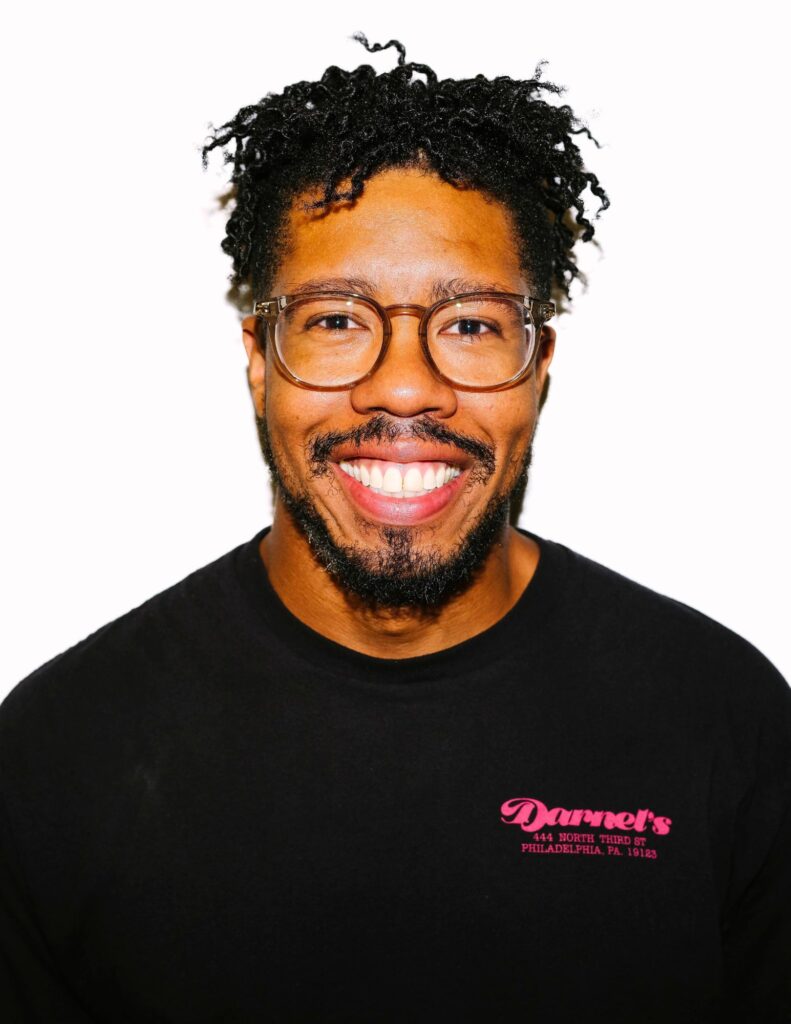
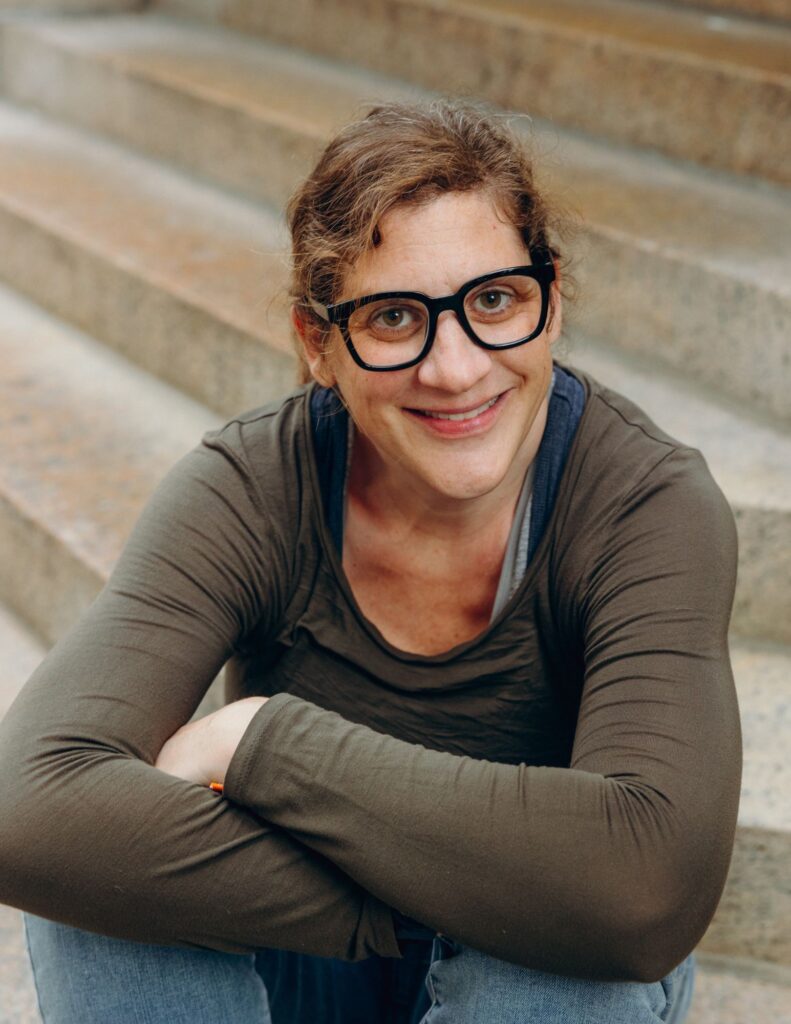
Dr. Danna Bodenheimer
Bodenheimer, who could not be reached for comment, is the founder and director of Walnut Psychotherapy Center, a prominent therapy practice in Philadelphia serving the LGBTQ+ community. Bodenheimer also has more than 15 years of experience in the mental health field, with a particular focus on providing therapeutic care to those in the LGBTQ+ community. For the Scholars-in-Residence program, she will bring the perspective of an experienced instructor and published author who is particularly interested in the effects of dual marginalization.
Responding to community needs
Jake Muscato, one of the Penn LGBT Center’s associate directors, explained that the transition to Philadelphia-based scholars this year was because the Center wanted to give local activists and educators a platform and because of the scholars’ significant contributions to the community. Muscato elaborated that connecting to the community is an essential tenet of the LGBT Center’s goals.
Muscato also shared that another of the Scholars-in-Residence program’s main goals is to “change hearts and minds, which is the goal of advocacy and scholarship.”
“It’s often community activists who have told the story of queer and trans communities, so this is the natural connection between this sort of work,” said Eric Anglero, the director of Penn’s LGBT Center.
Anglero also highlighted that the work of the three scholars in the 2024 program is integral to the current story of the LGBTQ+ community in Philadelphia and the ways that academic spaces talk about gender and sexuality.
In addition to connecting and empowering queer and trans students, the program is a learning opportunity for students who may not otherwise encounter these topics, organizations or conversations. Anglero also explained that the aim of the program is to truly foster learning, including those working within the Penn LGBT Center. In fact, many facets of the program are driven by the students themselves, as the Center actively seeks their input on what they want out of the program.
“My hope, my dream is that we are responsive to the community needs and that we are really open to listening, as I think the Center really has done since its foundation,” Anglero said.
“As we face this litany of legislation happening nationally, I think this is one of the ways to highlight how advocacy can happen even in the face of some really terrible legislative maps,” Anglero added.
Embracing Intersectionality: Sean Massa
Awarded prestigious foreign diplomacy fellowship, Alumnus credits a sense of belonging found in Penn’s LGBT Center, GIC, and Native communities.
Before Sean Massa (C’15) could apprehend the intercultural understanding needed to launch a career in foreign diplomacy, he first had to discover his own individual identity.
There was an immediate impact the day he set foot on the University of Pennsylvania campus. Massa began a journey into understanding his own self as a queer student with Native, Pacific Island, Latino, Asian, and Eastern European heritages — the intersectionality of his various identities.
Through acknowledgement of the different forms of discrimination faced as a diverse and queer student, Massa found a sense of belonging in University Life’s cultural centers that helped him thrive.
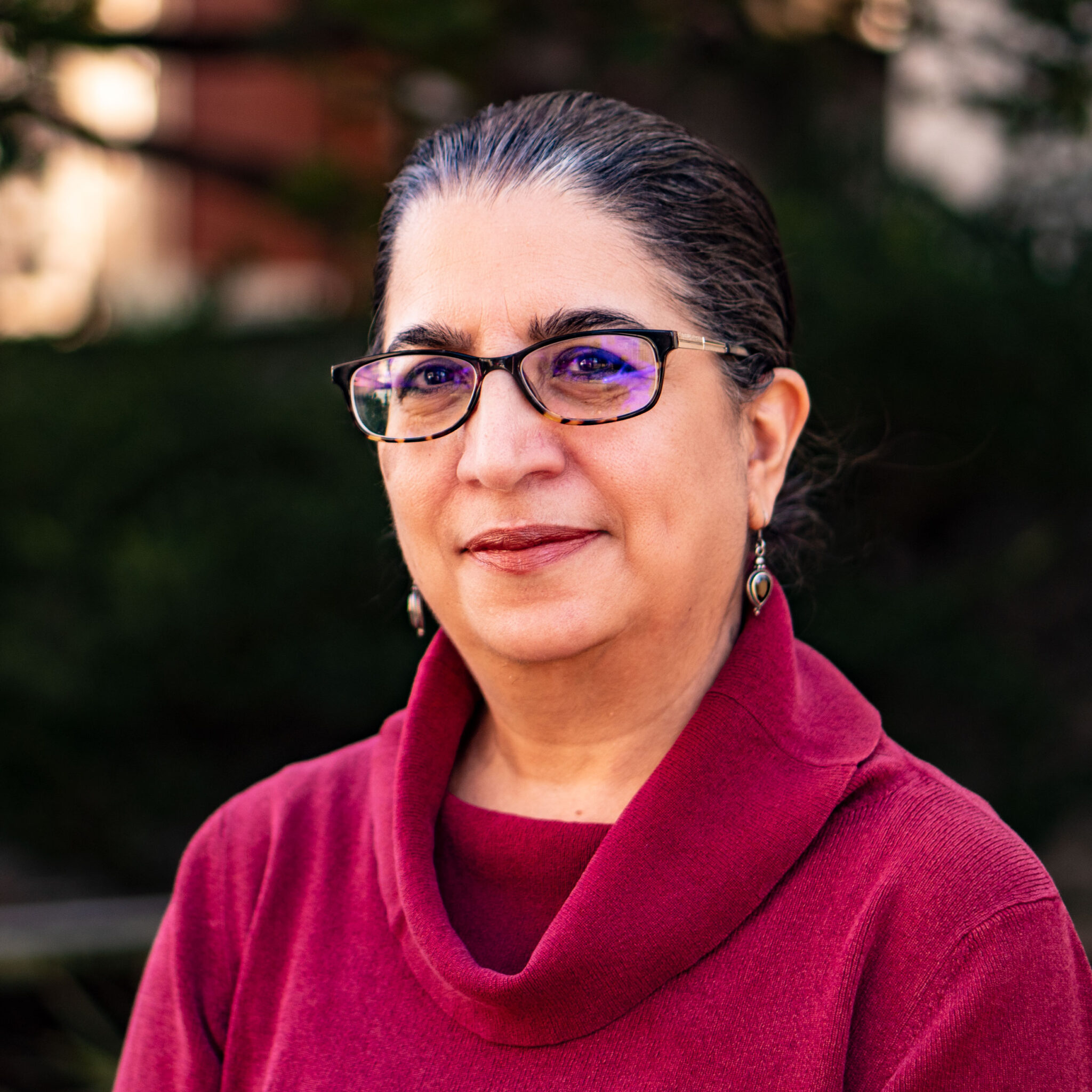
It is no coincidence that his personal exploration began on the steps of the Greenfield Intercultural Center. The GIC became a home away from home during his time in Philadelphia. Through inclusive spaces and programming initiatives, as well as relationships formed with Penn students from diverse backgrounds, the GIC made a particular impact on his personal development as a multiracial student.
“It’s easy to feel like you’re not enough of one thing or the other – you’re not Latinx enough, you’re not Asian enough, you’re not whatever enough,” Massa said. “The GIC people came from these vastly diverse backgrounds. No matter what you were, you were accepted, and you belonged. Not only that, but they also took that angle to other forms of identity beyond ethnicity, like religious identity or socioeconomic background.”
Embracing his identities forged his passion for intercultural engagement and global affairs that shepherded his career path as a diplomat.
Massa graduated from Penn in 2015 with a major in Health and Societies with a concentration in global health and a minor in philosophy. He was a baccalaureate speaker, in addition to serving as a representative on the United Minorities Council.
Pivotal Moments
Massa grew up in San Jose, Calif., a multicultural city that in many ways was a melting pot that was much like his own. He identifies as Mexican and Apache on his maternal side, and Japanese, Hawaiian, and Lithuanian on his paternal side.
Almost immediately, he was drawn to Natives at Penn, a student organization that represents indigenous students. On his first day on campus, Vanessa Iyua, former associate director at the GIC, handed him a Natives at Penn brochure and a Daily Pennsylvanian article on its annual powwow. In many ways, Massa and four other students were being handed over the leadership. Together, they rebuilt the organization, formerly known as Six Directions, from the ground up.
As co-chair, Massa advocated for the Native community on campus by promoting the recruitment and retention of Native American, Native Hawaiian, and Native Alaskan students, as well as connecting students, alumni, and allies in cultural awareness events. Natives at Penn reorganized a room on the third floor of the GIC that they could call their own space, complete with a library and meeting room. The organization hosted a campus powwow that celebrated traditional and modern indigenous culture with singing, dancing, music, food, jewelry, and clothes.
“We were a community,” Massa said. “We looked out for each other. We came from different backgrounds – some of us came from reservations, but most came from the big cities.”
His involvement expanded to a vice president position on the Ivy Native Council, a consortium of the campus organizations across the Ivy League. In that role, he learned from different indigenous groups and understood best practices for addressing certain issues facing those communities. Ivy Native Council met with the National Congress of American Indians to discuss the name controversy with sports mascots, specifically for the Washington football team.
Massa was also involved with the Penn LGBT Center. He was a participant in the LGBT mentorship program and co-chaired the Queer Christian Fellowship.
Massa’s interest in global affairs was piqued by a unique semester-long study abroad opportunity through School for International Training’s International Honors Program. He studied global health and community health in Vietnam, South Africa, and Brazil.
“That was a very pivotal moment for me in terms of getting that international exposure that I had not been introduced to before,” Massa said. “It really changed my perspective upon coming back and then beyond Penn.”
“We were a community,” Massa said. “We looked out for each other. We came from different backgrounds – some of us came from reservations, but most came from the big cities."
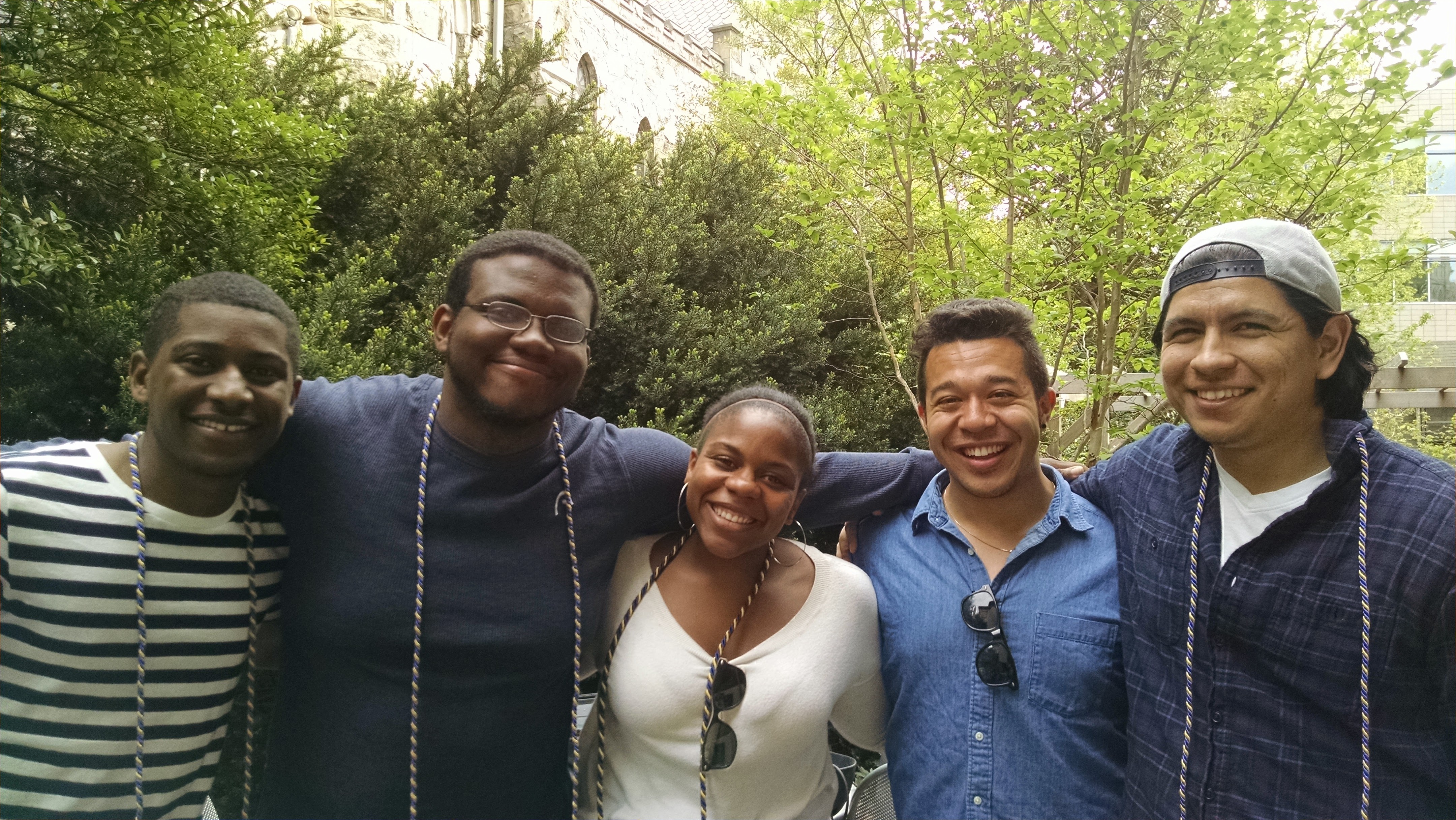
Mentors & Safe Spaces
Director of the GIC Valerie De Cruz first welcomed Massa through his involvement with Natives at Penn and made him feel welcome in his first year. Like many minority students that arrive on an Ivy League campus, Massa, who also identifies as queer, felt imposter syndrome. Massa used De Cruz as a resource anytime he was processing issues of belonging or personal identity.
“She reminded me that I deserve to be there,” Massa said. “When I felt unsure of my own kind of place in the Native community because I am an urban Native, as opposed to someone that grew up on a reservation, she reminded me of my value. She even encouraged me to come out even before I fully accepted who I was.
“She recognized that and nurtured me to fully and authentically be who I am.”
De Cruz had the kind of warmth, attentiveness and caring that allowed her to listen to students in a way that makes them feel heard. In a lot of ways, Massa added, she saw through to the distinct parts of his identity.
Massa grew up in a conservative household and attended a private Christian school for most of his childhood. He took a course called iBelieve: Interfaith Dialogue in Action, a partnership between the GIC, Chaplain’s Office, and the Graduate School of Education. iBelieve was an experimental seminar that took students from various religious backgrounds and fostered a dialogue about different topics ranging from conversion to interfaith marriage.
“Most students come to college with what they were raised to believe,” De Cruz said. “Sean immersed himself in various interfaith groups. He expanded his worldview, and it allowed him to think how he would see himself in the world.”
Massa credits Steve Kocher, Senior Associate Chaplain and Director of the Spiritual & Religious Life Center (SPARC); and Kathleen Hall, Associate Professor of Education and Anthropology, for providing a safe space to confront challenges to his own beliefs.
“That was eye-opening to me in terms of expanding my own worldview and my own understanding of what faith meant to me and my identity,” Massa said. “In a lot of ways, I had grown up in a background that did not fully encourage me to be who I was.”
He served as an upperclassman teaching assistant for iBelieve. Later, as a Penn alumnus, he continues to make an impact at the GIC by mentoring first-generation and low-income students.
Massa’s experiences with the GIC provided him with connections to parts of his own identity that were disconnected to his Bay Area upbringing. He said he felt more grounded in his own Native identity through meeting other students from indigenous backgrounds. Before his sophomore year, he volunteered for College Horizons, a non-profit organization that helps Native American high school students prepare for college. Meeting Native Hawaiians that saw him as one of their own reaffirmed his own identity to his father’s Hawaiian upbringing.hardddd
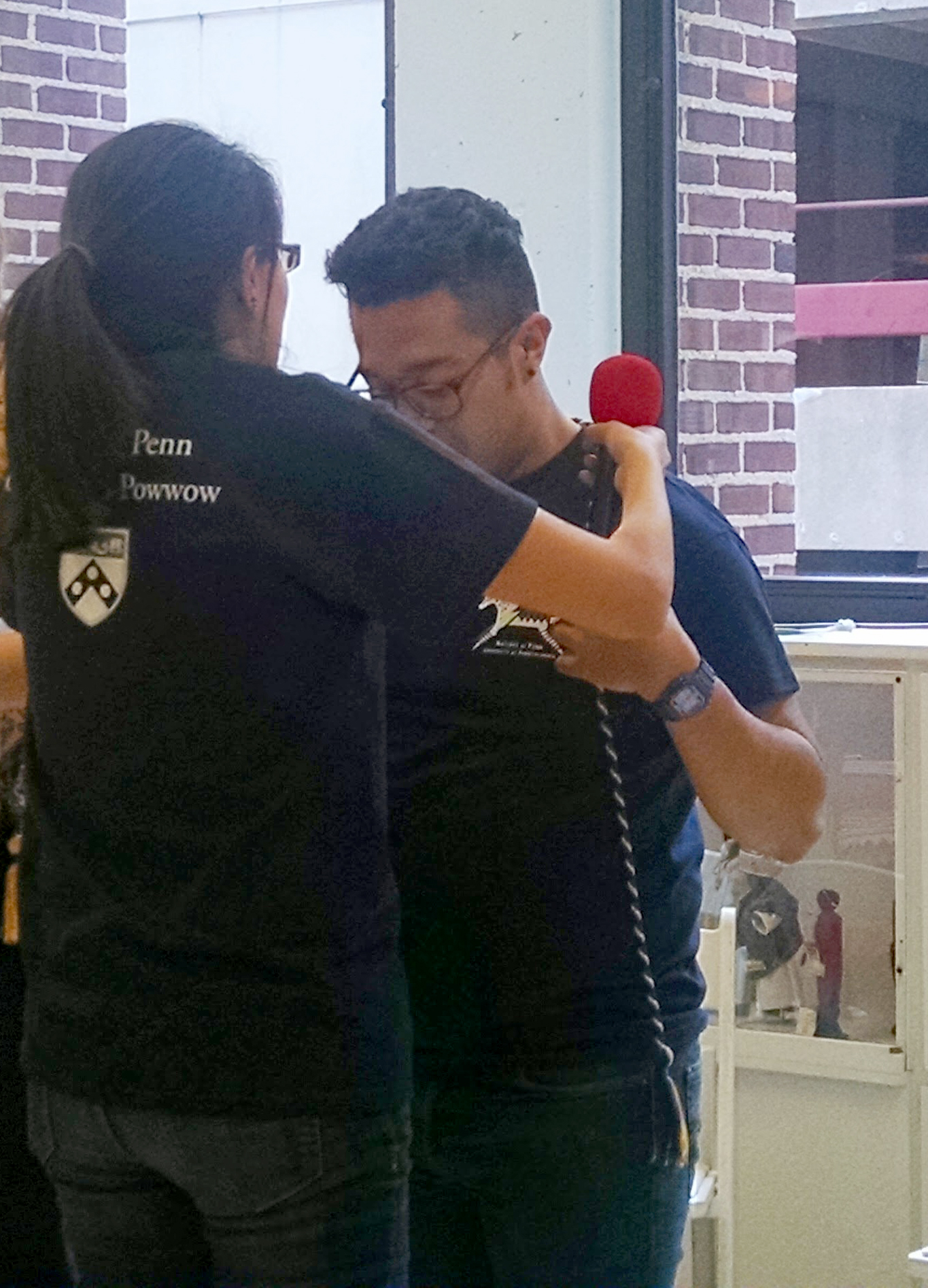
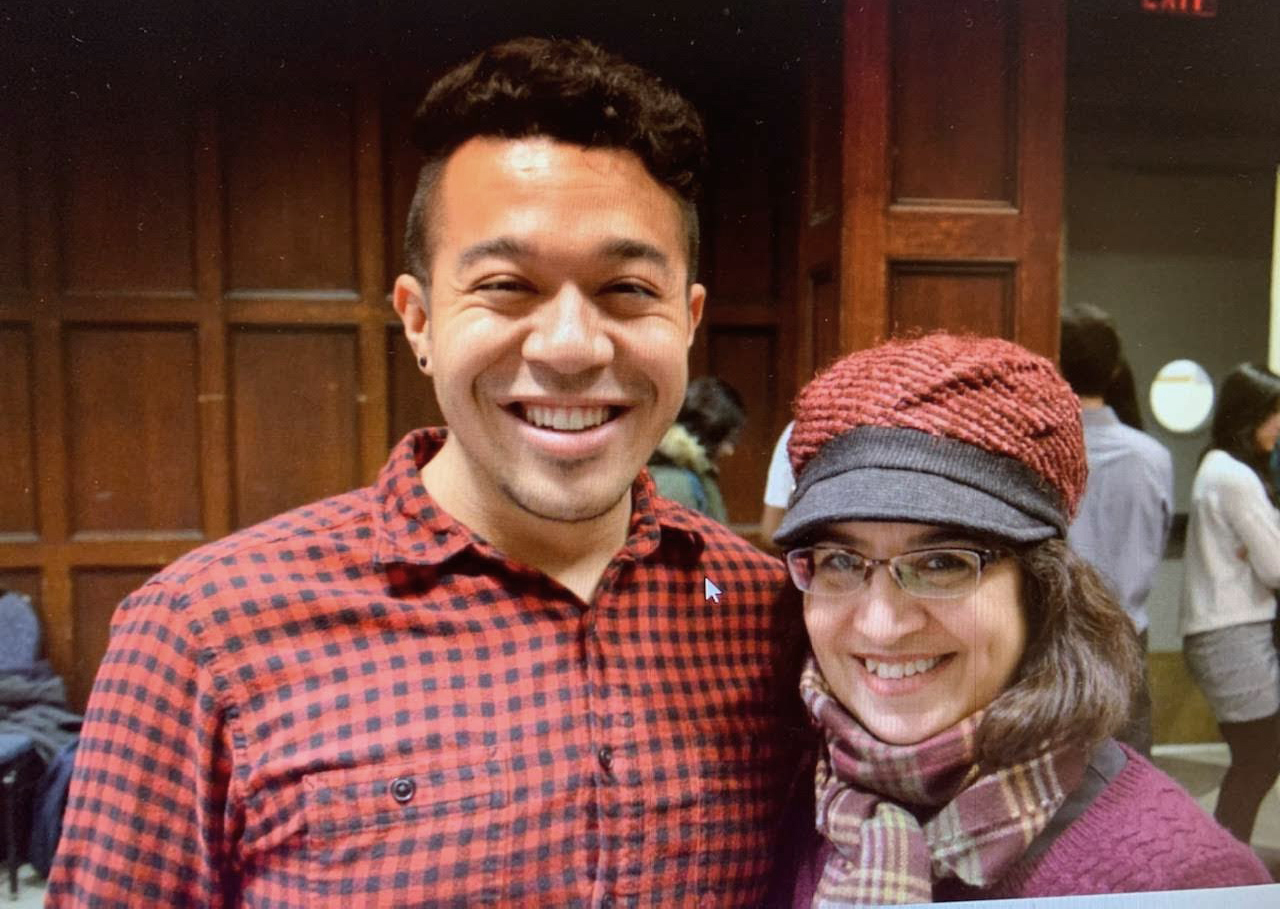
Pipeline of Diversity
In February, Massa was awarded the Charles B. Rangel International Affairs Fellowship. Funded through the U.S. Department of State and administered by Howard University, the Rangel Fellowship is a prestigious pipeline program for diverse individuals that wish to pursue careers in foreign service.
As a Rangel fellow, Massa will intern with Sen. Dianne Feinstein (D-Calif.). He is excited about the congressional internship with his home state’s senator because of her sponsorship of the Violence Against Women Act. Specifically, Massa said VAWA has several provisions that address violence against indigenous and native Hawaiian women.
Massa will intern with the State Department the following summer at a U.S. embassy or consulate abroad to gain boots-on-the-ground experience in Foreign Service. Upon his receiving a master’s degree in May 2024, he will begin orientation to become a U.S. Diplomat, a five-year commitment at an international post in either a political or public diplomacy track. Massa hopes to advance democracy, human rights, and peace around the world.
“I’ve had a lot of time to reflect on what kind of career would best suit me,” Massa said. “I realized I enjoy being abroad and navigating the daily challenges of being abroad through foreign languages, problem solving, and adapting. All those things make me come alive.”
After graduating from Penn, Massa was awarded a Princeton in Asia fellowship to teach at Atma Jaya University in Yogyakarta, Indonesia, and he interned with the United Nations Information Centre and U.N. High Commissioner for Refugees in Jakarta. He received a Master of Arts in Religion at the Yale Divinity School and Master of Laws in Human Rights at University of Hong Kong. Through his LLM program, he picked up the knowledge and skills to promote LGBTQ rights throughout Asia. His dissertation analyzed the legacy of British colonial anti-sodomy laws’ roles in propagating anti-same sex legislation throughout Asia.
His post-graduate experience has also helped shape his career path. At an internship with the United Nations Information Center in Indonesia in 2016-17, Massa met with a mayor to discuss gender empowerment initiatives in the only Indonesian province to practice Sharia.
He moved to Hong Kong in 2018 through a Yale graduate school partnership with the Red Ribbon Centre to conduct research on HIV and ethnic minority and migrant domestic worker communities. Sean also did pro-bono work supporting low-income Hong Kong students pursuing education opportunities in the United States, and he created health and well-being programming with R.U.N. for Refugees, an NGO that works with vulnerable displaced people.
Experiencing Hong Kong’s political unrest movement related to a now-scrapped extradition bill has also motivated his aspirations to become a diplomat. Massa has seen Hong Kong’s ethos change first-hand: its liberal institutions and values have diminished slowly. Political protests have all but ceased, and citizens are hesitant to speak out or voice their opinions. “It made me more aware of the values that the United States upholds and its platform in the world to promote these values and protect them when they are threatened,” he said. “The more I’ve reflected on it, I wanted to pursue a career that would allow me to make a tangible change in that way.”

Throughout June, University Life will celebrate Pride Month with stories and interviews of influential figures in Penn’s LGBTQ community.
University Life Spotlights the Center’s Own Xandro Xu
University Life, as part of its efforts to highlight the student experiences, has been publishing a series of “Student Spotlights.” The LGBT Center is delighted to share that one of our Program Assistants, Xandro Xu, was invited to be interviewed. Xandro is a freshman, who, in addition to working at the Center, serves as Vice Chair of Education of the Lambda Alliance, tasked with organizing QPenn, Penn’s LGBTQ+ week of celebration. Click here to read the full interview on University Life’s website.
Common Ground: Dismantling Oppression Olympics
On Wednesday, January 29th, 2020, the LGBT Center and fellow collaborators hosted a discussion based program titled “Oppression Olympics: Dismantling Oppression Olympics” as one of the final events of the Annual MLK Jr. Symposium for Social Change coordinated by the African American Resource Center. The event brought together a varied audience of about 30 people ranging from Penn faculty, staff, students and Philadelphia community members.
Facilitated by LGBT Center Associate Director Malik Muhammad, the discussion that ensued was profound. The major principle guiding the conversation was MLK Jr’s philosophy of “Injustice anywhere is a threat to justice everywhere.” With this, Malik sparked a discussion focusing on the notion of the Oppression Olympics, the idea that social justice movements (namely the Black Civil Rights Movement and the LGBTQ+ Movement for this program) can not co-exist and must be pitted against each other.
Using intersectional frameworks and historical leaders like Bayard Rustin and Pauli Murray, participants were able to gather historical knowledge and prime examples of how folks can support multiple marginalized identities, many that overlap) at one time. Overall, the discussion lead to some beautiful moments of solidarity manifesting and community building. In feedback received, one participant mentioned, “I was blow away by the dialogue and the participants.”
A special thank you goes out to Campaign for Community of the Penn Provost’s Office for providing funding to support the dinner that was provided. It certainly added a great layer to the event. Someone in attendance even said, “People’s faces were lighting up when the saw the many vegan opinions that were not just a salad.” We’re so grateful to have had the opportunity to collaborate with so many amazing partners to offer a much need conversation.
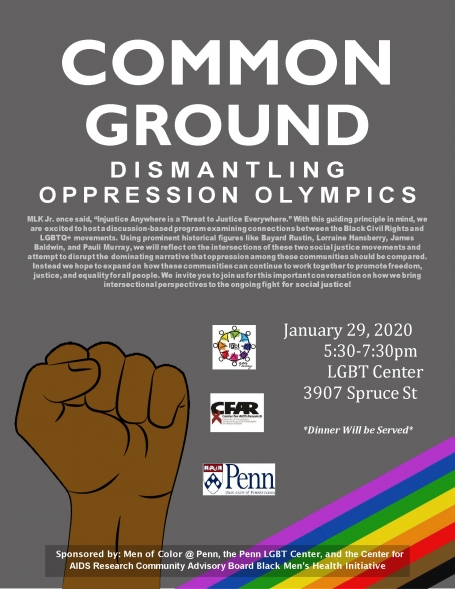
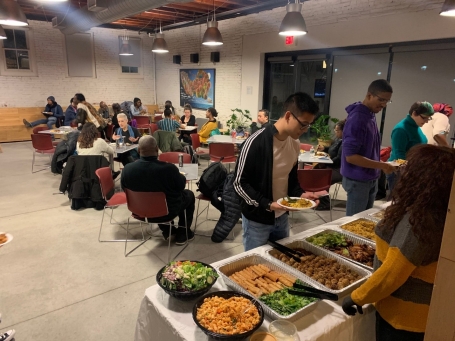
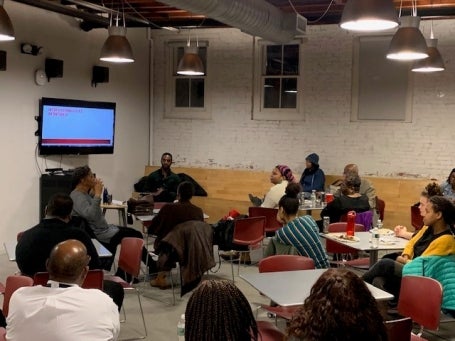
Solidarity NOT Appropriation/ Full-Metal IndigiQueer Residency for the Rev Martin Luther King Jr Commemorative Symposium on Social Change, 2020
During the Rev Martin Luther King Jr. Commemorative Symposium on Social Change, 2020, in January, the LGBT Center was honored to host the first of its kind residency with Joshua Whitehead and Demian DinéYazhi’. For two days, Whitehead and DinéYazhi’ helped to facilitate dialogues around Indigeneity and social change as it relates to our current culture and movements of justice and equity.
On the first day, Whitehead and DinéYazhi’ spoke with SP2 students enrolled in the Understanding Social Change: Issues of Race and Gender, and Whitehead read pieces of his fictional work at Kelly Writers House. Later in the afternoon, they had a meeting with the Dean of SP2, Sally Bachman, and held a casual conversation with Indigenous faculty, staff, and students in the Greenfield Intercultural Center. On the second day, Whitehead and DinéYazhi’ read their poetry at a luncheon hosted by the LGBT Center, Greenfield Intercultural Center, and Penn Women’s Center. DinéYazhi’ then met with MFA students in the Fine Arts Department for MFA crits and later joined Whitehead, and Tailinh Agoyo, Director of We Are the Seeds of CultureTrust Philadelphia, for the Mark Gordon Lecture in the evening at Penn Law School.
The residency, titled, “Solidarity NOT Appropriation/Full-Metal IndigiQueer” was generously co-sponsored by The School of Social Policy and Practice, Annenberg School for Communication, Penn Dental Medicine, Penn Women’s Center, Kelly Writers House, Graduate School of Education, Greenfield Intercultural Center, The Department of English in Penn Arts and Sciences, Gender, Sexuality, and Women’s Studies, Alice Paul Center, The Sachs Program for Arts Innovation, Penn Law School, Penn Law Office of Inclusion & Engagement, Penn Law Native American Law Students Association, and Lambda Law of University of Pennsylvania.
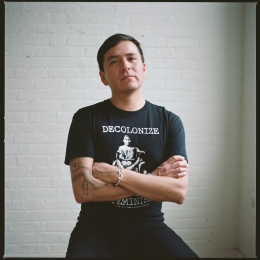
Demian DinéYazhi’ is a transdisciplinary Indigenous Diné Nádleehí artist, poet, and curator. Their practice is a regurgitation of purported Decolonial praxis informed by the over accumulation and exploitative supremacist nature of hetero-cis-gendered communities post colonization. They were formed from their mother who is a descendant of sacred beings that came to emerge from this world through the holy act of migration and from a people ceremonially devoted to cosmological harmony and balance. They are a survivor of attempted European-inspired genocide, forced assimilation, White fear, sexual and gender violence, capitalist sabotage, and hypermarginalization in a colonized country that refuses to center their politics and philosophies around the Indigenous Peoples whose Land they occupy. They live and work in a post-post-apocalyptic world unafraid to fail.
Instagram: @heterogeneoushomosexual
(Photo credit: Kali Spitzer)
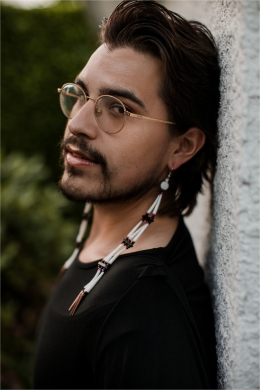
Joshua Whitehead is an Oji-nêhiyaw, Two-Spirit member of Peguis First Nation (Treaty 1). He is the author of full-metal indigiqueer and Jonny Appleseed. Currently he is an ABD doctoral student at the University of Calgary (Treaty 7) where he focusses on Indigenous literatures and cultures with a specialization in gender and sexuality. His forthcoming book, Making Love with the Land, a creative non-fiction manuscript that details Indigeneity, queerness, and mental health, is slated to release in 2021 with Knopf Canada.
Alumni Spotlight: Naomi Washington-Leapheart (she/her) C’04
What brings you back to be involved in the center?
I wasn’t out while I was at Penn. I knew that I was something other than straight, but I didn’t have any language to help me articulate how I could keep my faith commitments AND be Black AND be queer. I want to be involved in the center today because I know that there are students who feel like I felt. I want to support them as they try to negotiate identities that have been framed as contradictory. I’m a Black, queer, Christian minister. I exist. So can they.
What does the LGBT Center at Penn mean to you?
It’s really amazing that the Center has pioneered the way for LGBTQ inclusion and radical hospitality in colleges and universities for so many years. I feel like it’s part of my responsibility to make sure the Center thrives, and to make sure that the Center offers programming that resonates particularly with Black, Brown, and indigenous queer and trans folks — often, we’re invisible, fetishized, or held in contempt in LGBTQ spaces. The Center can help to eradicate that.
Message from Loran Grishow-Schade
With graduation just around the corner, in a couple of months, I’m going to start receiving this newsletter rather than help to create it. I know what the Center can look like for students, faculty, and staff. Yet being an employee here has prohibited me from connecting — as a student– to other trans and queer students on campus. By being so connected to the mechanics of making sure the Center continues to enrich the lives of trans, queer, and intersex (TQI) folx, I’ve missed out on the opportunity to build a student community of my own. So, when I think about what I want to see in this newsletter after I leave, I think I have a different understanding of what makes the LGBT Center at Penn so critical to the lives of TQI faculty, staff, and students at Penn.
For instance, I bet you didn’t know that there’s a group of staff on campus — named “Student Name and Gender Working Group–devoted explicitly to supporting gender nonconforming, nonbinary, and trans (GNBT) folks in the logistical apparatus at Penn. Thanks to the advocacy of the Center we know that gender markers and names can be updated at Penn. But how does this technologically happen since Penn community members have to navigate multiple online platforms: WorkDay, PennInTouch, ApplyWeb, etc.? SNG-WG’s (pronounced “Snug-Wug”) mission is to streamline the entire process, so that–say– if you change your name in one system, do the other systems respond positively to that change? In having a non-binary sex marker, or “X” on all my legal documents, I have existed as a test-pilot to determine if Penn systems are physically ready to support nonbinary and intersex folx, in a technological world built of the binary code. I want to be updated to know that nonbinary and intersex folx can technologically exist on campus and aren’t continually misgendered or missexed because of an archaic tech system.
The Center just applied for a grant to collaborate with the Fine Arts Department to update the art in the space, so it’s more reflective of the populations we serve. Will the Center get the grant? Fertility treatments and adoption support still aren’t covered under Penn’s insurance plan. Erin keeps advocating in HR, but is the system of Penn ready to acknowledge some unique healthcare barriers specific to LGBTQIA folx? PennDOT will be rolling out “X” markers on IDs later this year for folx who want them. How will the Center support the Penn eco-system during this transition? Pennsylvania still only amends birth certificates, rather than correcting them, leaving GNBT vulnerable to outing. How is the Center contributing to this conversation in Harrisburg for Penn’s community?
Maybe you’ve heard that Fresh Grocer on 40th and Walnut is closing its doors in the middle of March to make way for an ACME which will open later this year? What are students, faculty, staff, and West Philadelphia residents supposed to do for food and essential items while we wait for a new store to open? The LGBT Center is working with Penn First Plus (P1P), First Generation Low-Income (FGLI), and Greenfield Intercultural Centers (GIC) to make sure that food sovereignty on and around campus isn’t compromised any further. I want to be updated to know that students and community members aren’t having to miss meals because Penn’s administration decided not to renew Fresh Grocer’s lease.
After being the Social Work Intern at the Center for an academic year, I recognize that alumni want to hear about what has been accomplished so that they feel affectionate and supportive of their alma mater. However, it’s so challenging to pause and talk about accomplishments when the next project or conversation doesn’t allow for the privilege of reflection. This newsletter, as it currently exists, grants space to reflect, pause, and celebrate the small victories on the path towards equity and inclusion. Regardless of what the next social work intern will help this newsletter to become, I will know there’s a whole world beyond that newsletter full of unannounced meetings and strategies to center TQI folx at Penn, in Philadelphia, Pennsylvania, and the US. So, when I start getting the alumni newsletter, and I see the “Donate Today” button while Sallie Mae is knocking on my door, I’m going to be thinking of the ways I can donate my time, skills, and knowledge I’ve amassed working for the Center. Or, to quote the most significant play ever written: “Nothing’s lost forever. In this world, there’s a kind of painful progress. Longing for what we’ve left behind, and dreaming ahead. At least I think that’s so.”
Alumni Spotlight: Lisa Doi (she/her) C’13
Towards the end of my senior year, I reflected on what Penn had given me and contemplated my new relationship to the school – as an alumni and donor. So as I entered this new role, I thought a lot about why and how I want to give.
In terms of why: I want to support the best of my own college experience. Penn was defined by relationships, especially with friends, faculty, and staff. These relationship built spaces on campus where I knew I belonged and where, through that sense of belonging, I could excel. At the LGBT Center, I enjoyed having a space on campus where I could convene non-LGBT student groups, bring in peers who may not have otherwise come into the building, and connect them to the resources of the center. Above all, I valued the support I received from other students and staff, especially Erin Cross, Bob Schoenberg, and Rebecca Schept. These are the relationships that defined my Penn experience.
On to the how: in a university like Penn, I know I am not, and likely never will be, a major donor. Nevertheless, I want to give in a way that reflects my values and maximizes my impact. I could give unrestricted dollars or broadly to the Penn Fund, but giving to the LGBT Center makes me feel like my gift matters – because I know the kinds of staff, programs, and services my gift will support.
As a student, it is often hard to conceive of Penn after you’ve graduated, but it is the crucial work of the LGBT Center staff to make the Penn we experienced and the Penn that will come after us. When I was a student, the LGBT Center staff was in the early phases of making a gender-neutral restroom map and they were, as I remember it, essentially told it was impossible. Today there is a gender-neutral restroom map. These improvements, however large or small, are made because of the people who are at Penn for more than four years. Giving is how I continue to support their work.
A Letter from LGBT Center Director
Recently when people discover I have been at the LGBT Center for 20+ years, they are amazed and ask how I have done it. My response is usually, “Change. Changing students, needs, campus situations, and societal views have enabled me to reinvent myself despite the Center’s mission staying the same. It is the only way to truly serve Penn’s LGBTQ+ communities well.” 2019 has been no different in that it was full of change for the Center, including but not limited to:
- The departure of Associate Director Tiffany Thompson
- A record number of Townsend Fund grants given for students making a gender transition
- Release of the Center’s first Faculty Out List
- Hiring and training a graduate student and alum Hector Kilgoe to catalog the Center’s Archives at the Kislak Center through the Schoenberg Archive and History Fund
- Increased outreach to, and collaboration with, graduate and professional students
- Opening of Penn’s first public all gender, multi-stall restroom in McNeil, with a few more slated to go live in summer 2020
- For the first time ever, the Center worked with all 12 schools in some capacity
- Assistance for students to go to conferences
- (Soft) launch of our new ‘Alumni Out Loud’ series over Homecoming to better connect alumni with current students via their personal stories
- More arts-focused and community collaborations
And these are only a few of our initiatives to ensure LGBTQ+ voices are heard, needs are met, and our Center continues to be a welcoming safe and brave space where everybody can bring their full selves.
One thing that has not changed, however, is my thanks. Thank you to our on- and off-campus collaborators, work-study staff, and our professional staff (Malik, Sam, and Loran), but also my deepest thanks to YOU. We could not do this vital, ever-changing work without you, our friends and supporters. So, thank you again on behalf of the Center and all of Penn’s LGBTQ+ communities. We forward to your continued support.
With gratitude and wishes for a wonderful 2020
Erin
